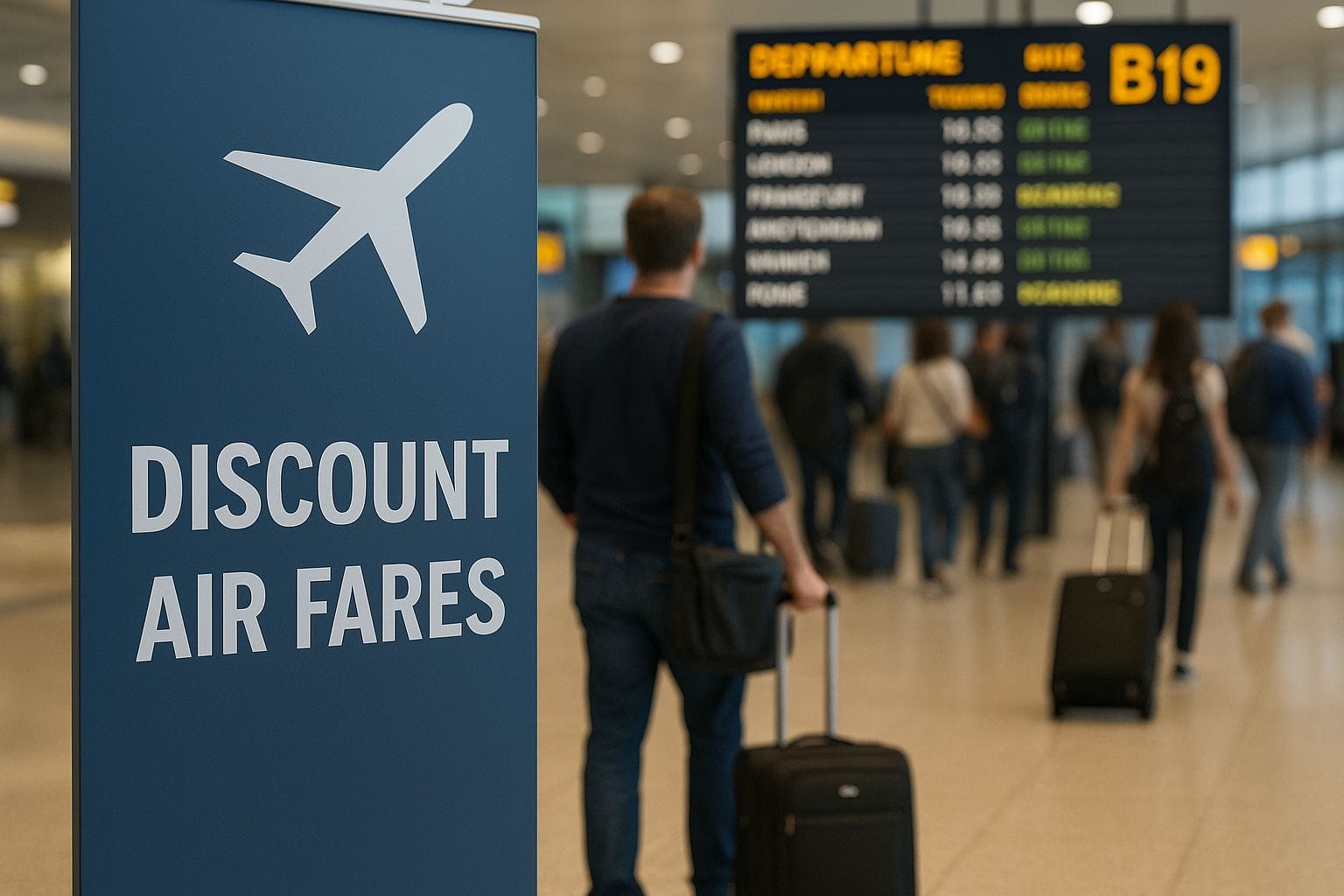A sharp drop in travel demand from Europe to the United States is reshaping the transatlantic aviation landscape in 2025. Airlines such as Delta Air Lines, American Airlines, Air France, British Airways, and Lufthansa are slashing fares to key US cities including Atlanta, Boston, Washington D.C., and Los Angeles, as European-origin bookings collapse under the pressure of a soaring US dollar and shifting consumer preferences.
According to recent data from the U.S. National Travel and Tourism Office (NTTO), total overseas arrivals to the U.S. fell by 2.8% in May compared to the same period last year, with Western European arrivals dropping by 4.4%, marking a continuation of the downtrend observed in early 2025. In March, the figure was even steeper, at 17% year-over-year.
The result? A wave of fare cuts, route restructuring, and pricing promotions as airlines pivot to alternative source markets such as Mexico, Canada, and the Caribbean, where demand for US travel is booming.
Airline Fare Cuts Shake Up Summer Travel
With transatlantic bookings softening, major international carriers have responded by aggressively reducing fares. Industry tracker Cirium reports that average round-trip economy fares on more than 50 Europe–US routes have fallen by 7%, with specific markets seeing much deeper reductions.
For instance:
- Fares between London and Atlanta have plunged by 55%, one of the sharpest price drops in the transatlantic sector.
- Routes to Washington D.C., Boston, San Francisco, and Los Angeles have seen similar downward trends, with average fares falling back to pre-pandemic 2019 levels—currently averaging around $817 round-trip.
Hopper, a leading travel booking platform, attributes the price cuts to plunging European interest, with airlines now relying on fare flexibility to maintain load factors during the traditionally high-traffic summer season.
What’s Causing the European Retreat?
Several factors have converged to dampen Europe-to-US travel demand:
- A strong U.S. dollar has made American vacations more expensive for European tourists.
- Heightened geopolitical tensions, including U.S. border enforcement policies and renewed political rhetoric under former President Donald Trump, have led to hesitation among European travelers.
- Public sentiment in many European nations has shifted, as travelers favor regional or intra-EU trips over long-haul journeys across the Atlantic.
According to industry insiders, political statements involving U.S. immigration and controversial global issues have created a perception of reduced welcome, further complicating recovery in this segment.
Airlines Refocus on Outbound US Travelers
Even as inbound travel from Europe weakens, outbound travel from the U.S. remains resilient. Delta, American, and United all report strong booking numbers from U.S. residents heading abroad.
Delta Air Lines shared that 80% of its long-haul bookings originate from the U.S., providing a financial buffer. Meanwhile, United Airlines acknowledged a 6% dip in European-origin bookings, but reaffirmed that U.S.-based demand was making up the difference.
Air France-KLM, which has reduced flights to Seattle and Washington D.C., is also targeting the U.S. outbound market with price promotions. CEO Ben Smith described the changes as “tactical adjustments to remain competitive.”
Lufthansa and British Airways are taking similar steps, slashing fares and refocusing marketing on American travelers rather than relying on their domestic European base.
Demand Booms from Mexico, Canada, and the Caribbean
As Europe retreats, travel from Mexico, Canada, and the Caribbean is surging. Airlines are now increasing seat capacity and frequency on north-south routes to meet this growing demand.
According to Hopper:
- International flights departing U.S. airports are up 4.3% this summer.
- Flights to and from Mexico remain among the most consistent performers.
- Caribbean destinations are seeing record bookings, particularly from Florida, Texas, and New York-based travelers.
Canadian tourism to the U.S. has also rebounded strongly post-pandemic, helping to offset the European slowdown. Airlines are now targeting these regions with expanded offerings, marketing campaigns, and special pricing.
Airlines Walk a Tightrope on Transatlantic Profitability
The broader implication of Europe’s pullback is a tighter profit margin for transatlantic operations. According to Tourism Economics, part of Oxford Economics, 2025 may prove to be one of the most financially difficult summers for international airlines operating US–Europe routes.
Airlines have returned to pre-pandemic discounting strategies:
- Flash sales
- Short-term deals
- Tiered promotions
- Flexible cancellation and rebooking terms
These tactics are helping to stimulate bookings quickly, though they come at the cost of profitability.
Airline-Specific Adjustments – May 2025
| Airline | Fare Reductions | Route Cuts or Adjustments | Key US Cities Affected | Notes |
|---|---|---|---|---|
| American Airlines | Yes | No major cuts | Atlanta, Boston, Washington | Focus on domestic demand; reduced European fares |
| Delta Air Lines | Yes | No suspensions | New York, LA, Boston | Promoting US-origin demand |
| United Airlines | Yes | No major reductions | San Francisco, Chicago | Down 6% on Europe-side bookings |
| Air France-KLM | Yes | Cut Seattle & reduced DC (Air France) | Washington, Boston | Repricing transatlantic routes |
| Lufthansa | Yes | Reduced frequencies, not full suspensions | NYC, Chicago | Shifting focus to outbound US traffic |
| British Airways | Yes | Cut Las Vegas; reduced Orlando & Philly | Orlando, Philadelphia, Las Vegas | Realigning routes with demand |
| Virgin Atlantic | Yes | No full suspensions | NYC, Miami, LA | Warned of a slowdown; adapting pricing strategies |
| Iberia | Yes | Cut flights to Dallas, Chicago | New York, Dallas, Chicago | Reducing capacity and slashing Madrid–NYC fares |
Conclusion: A New Travel Balance Emerges
In 2025, the global travel map is being redrawn, with Europe stepping back from U.S. travel and the Americas stepping in to fill the gap. Airlines are responding swiftly—cutting prices, adjusting routes, and reallocating marketing spend toward U.S.-based travelers and nearby neighbors.
For passengers, it’s an opportunity to secure some of the cheapest Europe–US flights in years. For airlines, it’s a season of adaptation, marked by thinner margins and smarter strategies.
Whether the European freeze continues into autumn remains uncertain. But for now, Mexico, Canada, and the Caribbean are powering a new transatlantic reality—and fare wars are back on.
For more travel news like this, keep reading Global Travel Wire
















